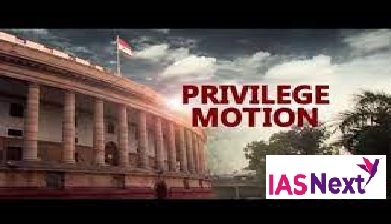CURRENT AFFAIRS
Get the most updated and recent current affair content on Padhaikaro.com
Privilege motion against CBI, ED in WB
- IAS NEXT, Lucknow
- 19, Nov 2021

Reference News:
The Trinamool Congress has moved a breach of privilege motion in the West Bengal Assembly against the Central Bureau of Investigation (CBI) and the Enforcement Directorate (ED).
What’s the issue?
It was moved for not taking the sanction of the Speaker before filing the chargesheet in the Narada case.
- The Central investigating agencies had filed the chargesheet against three members of the Assembly.
Need for Consent from the Speaker:
The matter was listed before the Calcutta High Court. The Calcutta High Court then gave a clear instruction to the CBI to take the consent from the speaker. However, the CBI went directly to the governor for his consent.
What are Privileges?
Privileges are certain rights and immunities enjoyed by members of Parliament/MLAs individually and collectively, so that they can “effectively discharge their functions”.
- Article 105 (Article 194 for State Assemblies) of the Constitution expressly mentions two privileges, that is, freedom of speech in Parliament and right of publication of its proceedings.
- Apart from the privileges as specified in the Constitution, the Code of Civil Procedure, 1908, provides for freedom from arrest and detention of members under civil process during the continuance of the meeting of the House or of a committee thereof and forty days before its commencement and forty days after its conclusion.
Motion against breaches:
When any of these rights and immunities are disregarded, the offence is called a breach of privilege and is punishable under law of Parliament.
- A notice is moved in the form of a motion by any member of either House against those being held guilty of breach of privilege.
Role of the Speaker/Rajya Sabha (RS) Chairperson:
The Speaker/RS chairperson is the first level of scrutiny of a privilege motion.
The Speaker/Chair can decide on the privilege motion himself or herself or refer it to the privileges committee of Parliament.
- If the Speaker/Chair gives consent under relevant rules, the member concerned is given an opportunity to make a short statement.
Applicability:
- The Constitution also extends the parliamentary privileges to those persons who are entitled to speak and take part in the proceedings of a House of Parliament or any of its committees. These include the Attorney General of India.
- The parliamentary privileges do not extend to the President who is also an integral part of the Parliament. Article 361 of the Constitution provides for privileges for the President.